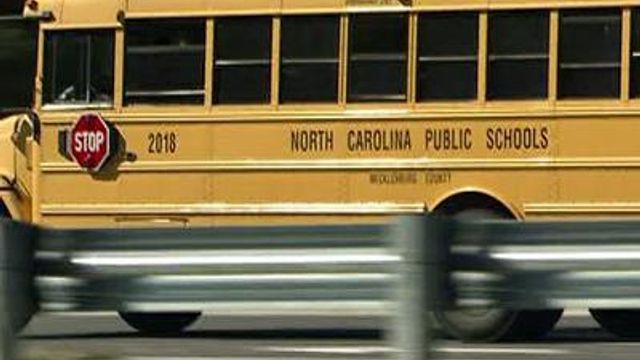Wake schools could imitate history of Charlotte schools
The Charlotte-Mecklenberg school system assigns students to neighborhood schools, a policy sought by recently elected members of the Wake County Board of Education.
Posted — UpdatedThere, a 1999 court ruling ended nearly three decades of busing to desegregate schools. Today, classes have "a few African-Americans, a few Anglo-Americans, a few of everybody," parent Tina Marshal said.
"The city has gotten past the racial divide," parent Martha Wittek said.
Civil rights lawyer Julius Chambers was involved in the lawsuits that desegregated Charlotte-Mecklenburg schools and the later lawsuit that ended racially based student assignment.
In 1965, Chambers sued on behalf of a family whose son wasn't allowed to attend a nearby, integrated elementary school and was, instead, sent farther away to an all-black school. At the time, 14,000 of 24,000 black students attended all- or heavily-black schools.
It took four years to get a court order to desegregate the school system by any means, including busing.
We were "trying to achieve the kind of equal opportunities for poor and minority children," but gaining that was tough, Chambers said.
"It was very rough. I can remember a riot that took place in 1972," said Mecklenburg County Commissioner Vilma Leake, who was a teacher then.
"It was very emotional," recalled school board member Joe White, a former coach and teacher. "You had people who thought it was great, and you had people who said, 'My kids aren't going to school with those kids.'"
Through the decades of forced integration, race relations in Charlotte greatly improved. However, a vast academic gap persisted.
In the 1998-1999 school year, 30.5 percent of black students scored at or above grade level on end-of-course tests. By contrast, 70.9 percent of white students met that mark.
That same year, Chambers returned to court to defend the policies he believed were still necessary to keep Charlotte schools integrated.
A family had sued the school system, saying their daughter was denied admission to a charter school because she wasn't black. As a result of the lawsuit, the school system adopted a new assignment policy to put more students in nearby schools and increase family choice.
"Just as we get to a point where we think we should be, we backslide," Chambers said.
Ten years later, schools such as West Charlotte High are nearly 89 percent black, with many students from low-income families. In a more affluent part of town, Myers Park High is 62 percent white.
"Charlotte-Mecklenburg schools are becoming re-segregated," Leake said.
Since racially based student assignment was ended, the racial gap in academic achievement has shrunk some but remains large.
In end-of-course tests for the 2008-2009 school year, nearly 65 percent of black students scored at or above grade level, compared to 89 percent of white students.
"The desegregation of public schools is much less important to this community. It is also much less important for the advancement of African-Americans," said David Goldfield, a history professor at the University of North Carolina-Charlotte.
Charlotte Mecklenberg adopted some policies to replace busing. For example, low-performing schools are placed in an achievement zone and given special attention to improve performance.
Leake said that while money for low-performing schools has been increased over the years, the playing field still isn't even for minority schools.
"The funds may be there, but the quality of the principal, the quality of the staff is still lagging," she said. Minority schools can lose out, she said, simply because good teachers like to go to good schools.
Only 3 percent of teachers at West Charlotte High are board certified. Schools in wealthier neighborhoods have several times as many board-certified teachers.
Parents said the divisions in schools largely aren't racial any more.
"Now it is more of an economic division," Wittek said.
• Credits
Copyright 2024 by Capitol Broadcasting Company. All rights reserved. This material may not be published, broadcast, rewritten or redistributed.





